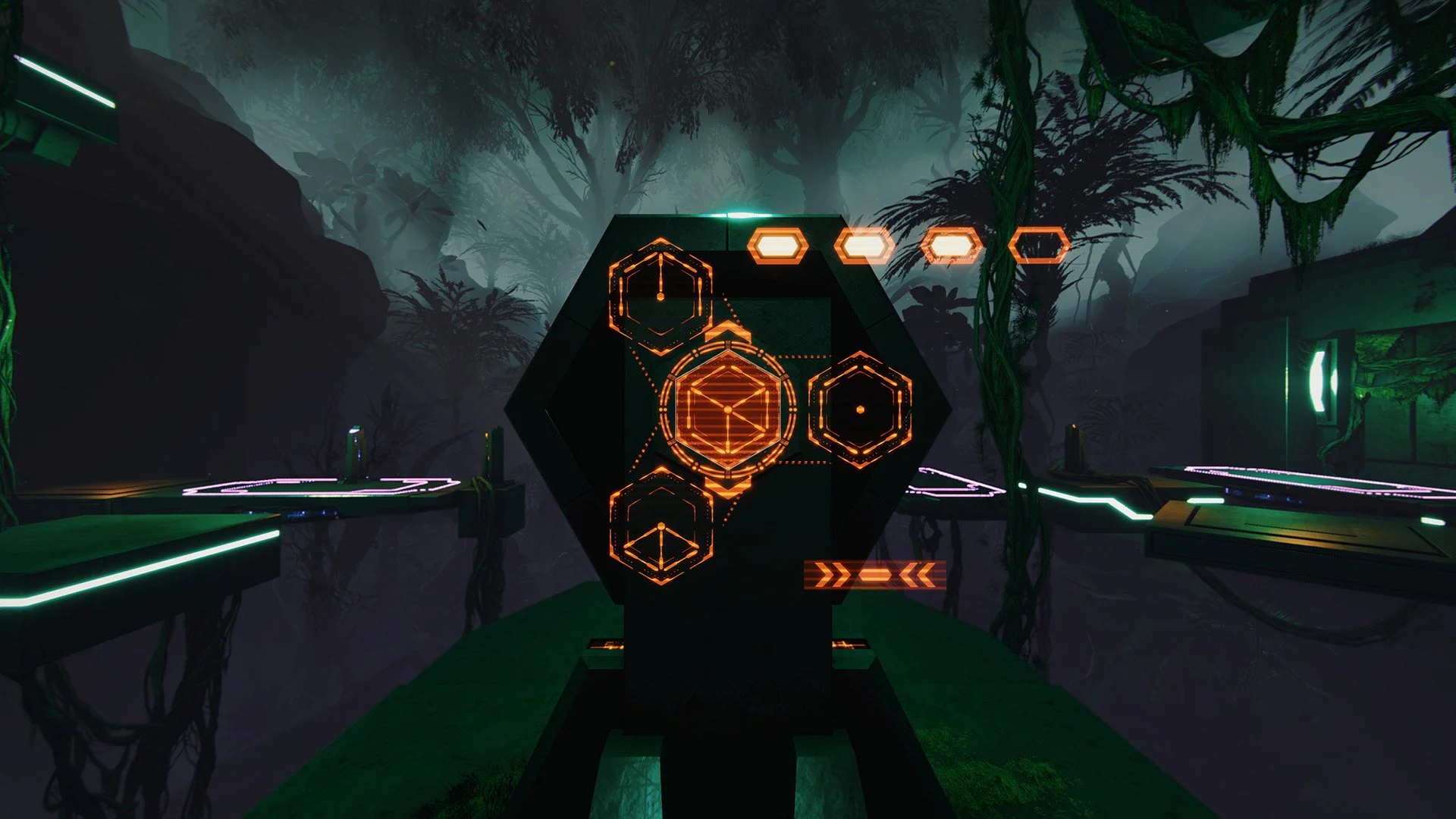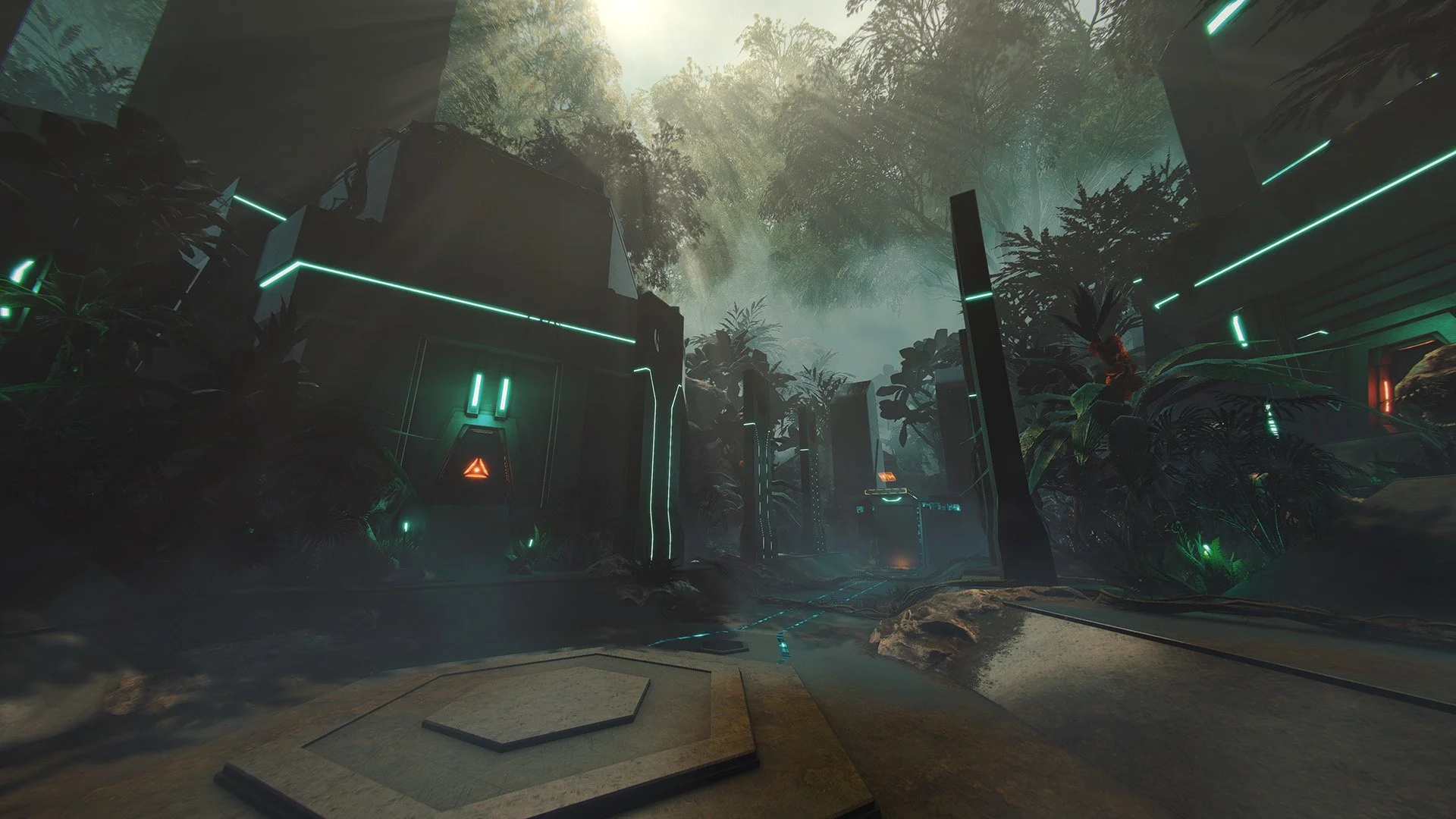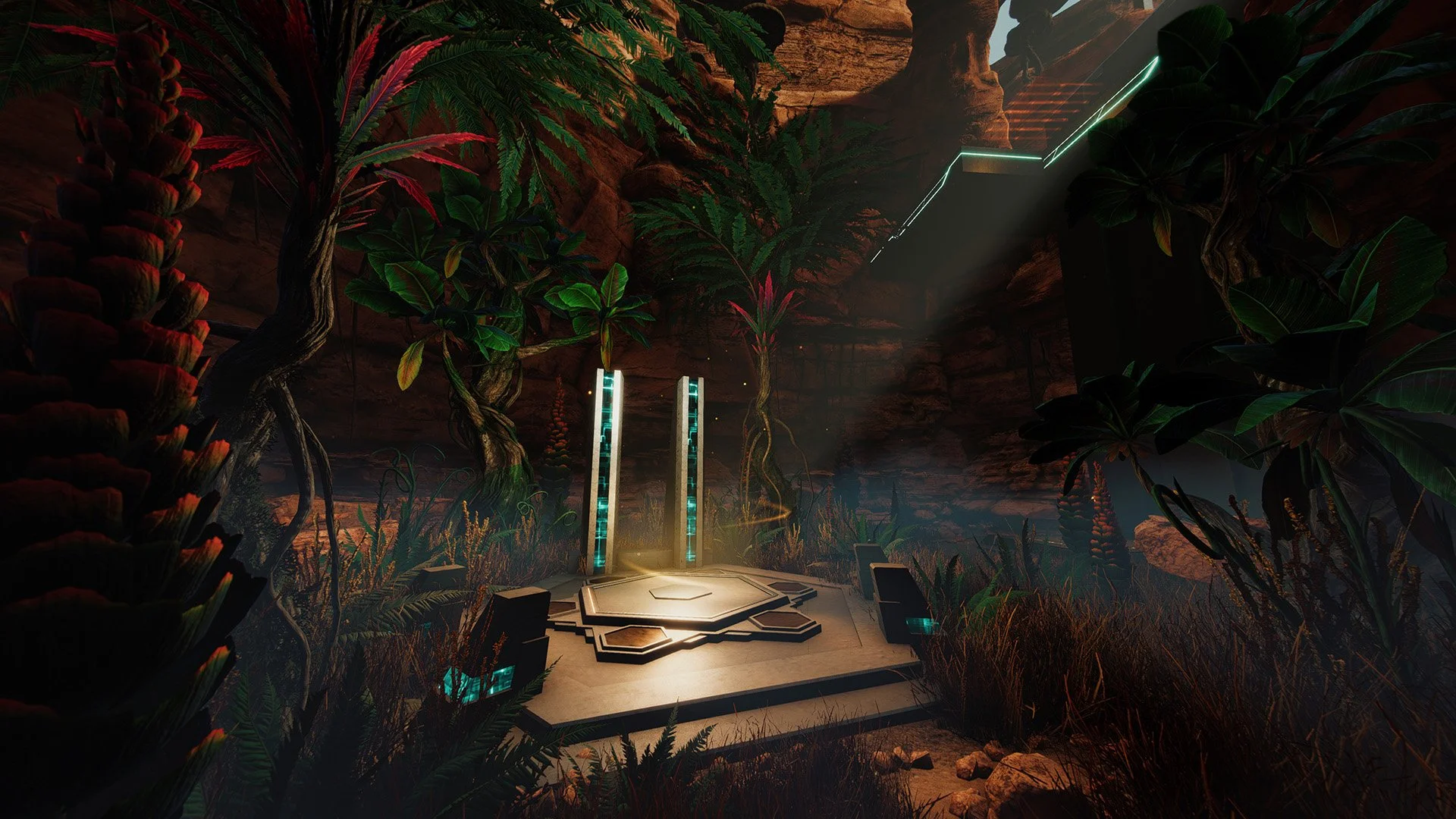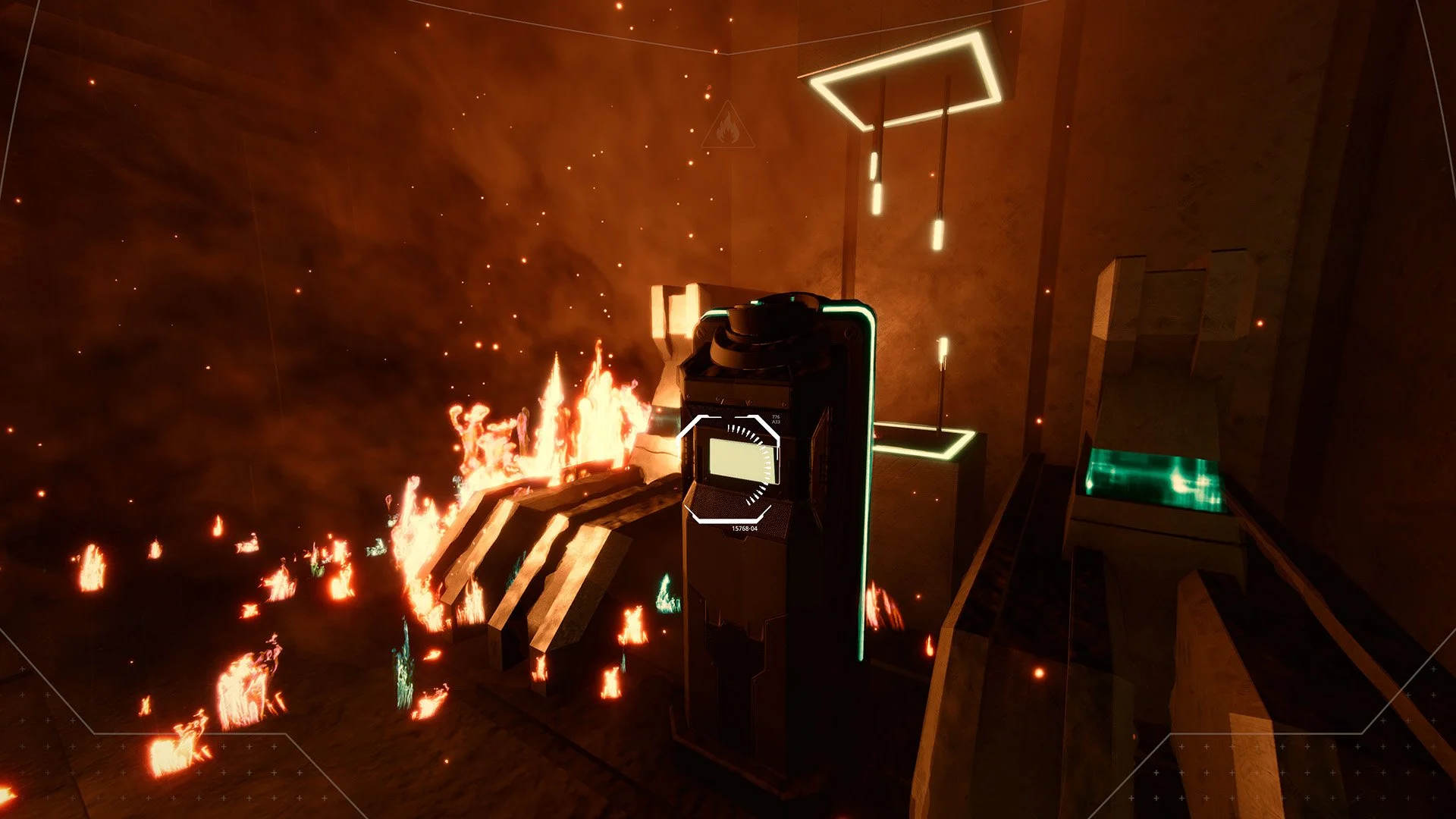Aus Indie Showcase winner INTERVIEW Memory's Reach
Firstly, what is Memory's Reach?
Memory's Reach is a first-person puzzle-based metroidvania. There's a big focus on ability-based progression where more of the world unlocks as you find new abilities and gain knowledge, as well as a lot of exploration and seeking out hidden secrets. But unlike other metroidvanias rather than shooting monsters you solve puzzles. So the abilities are all geared towards new ways of navigating the world or new tools for solving different kinds of puzzles, and the puzzles come in various different forms: from isolated logic puzzles (the holographic terminals seen in the trailer), to environmental puzzles where you're manipulating objects and altering the layout of a room using your abilities, to large scale meta-puzzles where the entire area is one giant puzzle or mechanism to be manipulated in order to "solve" the level.
How does it feel being announced as a winner for PAX Aus 2025 Indie Showcase?
It's an honour to have been selected. There are always so many great games being put out each year in Australia, it's great to be one of the few to be recognised in the PAX showcase. I'm really looking forward to the show.
How long have you been working on Memory's Reach?
I committed to the idea for Memory's Reach back in 2022, but before that I had been experimenting with a lot of other ideas and prototypes, and some of the systems and mechanics from those made it into Memory's Reach. And before that I had been thinking about the concept of first-person puzzle metroidvania even before shipping my last game. So its hard to say exactly when the idea for the game originated, but its safe to say full production began in 2022. At the time I thought I would ship it by the end of 2023, oh man was I wrong :D
What inspired you to make this style of game?
The idea is a combination of three interests.
First, I'm a big fan of metroidvanias and I've always wanted to have a go at building an interconnected metroidvania style world. I find them really enjoyable to explore and hunt down all the hidden paths and secret pickups.
Second, I love sci-fi so that informed the setting and the art style. Having come from a more terrestrial setting in my last game, I really wanted to lean into a bold scifi theme with this one.
Thirdly, I wanted to expand on what I did in my first game, and correct what I consider to be the major flaws in its puzzle design. I'm proud of The Eyes of Ara (my last game), and lots of people enjoyed it, but player exploration was extremely limited and I was never happy with how many of the puzzles turned out. I don't think they were all as interesting as they could have been; there were too many of them so I couldn't give each of them enough attention and iteration, and for many the most obvious solution was often the correct one. I wanted to correct this with Memory's Reach. So the game is much more open and encourages a lot more exploration, and I made a deliberate choice to have fewer puzzles in Memory's Reach so I could dedicate much more time and playtesting to each one. They are often more complex than Eyes of Ara's puzzles, have more interesting solutions (sometimes multiple solutions), and are simply more fun to solve.
What kind of experience do you want players to have when playing your game?
I've heard people describe progressing in a metroidvania as "slowly untangling a knot", which I think is a perfect encapsulation of the kind of feeling I want players to have. You're dropped onto this strange alien world and there's many blocked off paths and interesting things you can see but can't get to. So you make your way through powering up with new abilities and gaining knowledge about how different systems and puzzles work, and slowly but surely the world begins to connect together and you're able to untangle the knot. And that goes for the game's story as well - when you first arrive you have no idea what happened on this planet, but as you scan objects to gather lore and collect data logs from the different characters you can start to piece together the story.
What were some of the biggest challenges you faced during development, and how did you overcome them?
By far the biggest challenge is the level design, as I always expected it would be. Creating a metroidvania style world is very tricky - the map has to constantly loop back and reconnect with itself, you have to incorporate backtracking in interesting and efficient ways, and you have to incorporate late game abilities into early game areas. This is made ever more difficult in a puzzle game, because when designing a puzzle you don't want to include too many distractions or things that you don't yet have the tools to access, or players are going to get confused and frustrated. For example if a player walks into a puzzle room and encounters something they can't use yet because they don't have the required ability, they may get stuck thinking it's part of the puzzle - or worse they leave thinking they can't progress there yet. But maybe that's where they need to be so they end up getting lost and frustrated. So a big challenge when designing Memory's Reach is ensuring that when you encounter a puzzle it's fairly obvious whether or not you can solve it with your current tools, and doing things like hiding or disguising later game paths until you get the required tools. For example this might mean certain tech in the world can be mistaken for decorative art until later on when you get a new ability are realise you can interact with it. This is also a nice surprise as you think back to all the places you saw that seemingly innocuous object but now you start seeing the word in a whole new way.
How did you approach the art style for your game? Was it influenced by any particular games, art movements, or personal preferences?
The art was influenced by a few different sources. From games there's Metroid Prime, which was a big influence on me when I was studying game dev back at uni. That game's influence is felt throughout Memory's Reach but in terms of art I pay homage to it in the behind-the-visor style HUD. More broadly there's influence from Mass Effect, The Expanse (the TV show and books), and older scifi from authors like Issac Asimov and Arthur C. Clarke. I wanted to lean into the big, bold shapes, towering megastractures, and the inexplicable technology vibe of those sources. "Space brutalism" one friend called it. It was also a deliberate choice to reduce the production time of the art - as a (mostly) solo project an efficient art pipeline was really important. So this art style is designed to be fast to build and allow me to kitbash and reuse a lot of objects throughout the game. Big bold shapes can fill large sections without requiring intricate detail, and platforms can inexplicably float in the air without needing to build out all manner of supporting structure (this makes iterating on the level design much faster too).
How did you approach playtesting during development? Did player feedback change the direction of your game?
Absolutely. I do a LOT of playtesting with Memory's Reach - I take the game along to the local game dev meetup every month and have people try out the latest area or puzzles I've been working on. Often these are really raw, early iterations. Often greybox rooms with no art, and early puzzle designs that can be really clunky and unintuitive. I take a lot of notes then iterate on them for the next month.
Then there are also trade shows like PAX, or more specifically the smaller shows. PAX is Australia's biggest event so there's more of a focus on promoting the game and generally the demo I show there has already been thoroughly tested (but you still get a lot of great feedback about the game in general). But at smaller shows like TGX in Melbourne or AVCon in Adelaide I like to bring along work-in-progress areas and watch players try them out. These are usually several iterations in, so they will often have already been tested in greybox form at the dev meetup and are a bit more refined and have a first pass of the art done. But now I get to have non-developers sit down and play it and learn all new things about it. It's invaluable, and the game has improved enormously from all the playtesting.
What is your background?
I got my start in games 2004 as a 3D environment artist at Krome Studios up in Brisbane. From there I eventually found myself at Sega and when that studio closed down I formed my own one-person studio. I taught myself programming in C# to make The Eyes of Ara, which was scary as I did one semester of programming at Uni and understood none of it (I'm fairly certain they gave me pass out of pity). But I've since come to realise that it was just the way it was taught that didn't click with me, and once I found an online course that taught code in a way that made sense to me I began to really understand and enjoy it. I'm still faster and more comfortable working in art than I am in code, but I'm also a far better and more confident programmer now than when I was working on The Eyes of Ara.
What made you decide to journey down the path of game development?
I honestly can't remember ever wanting to do anything else! I got a NES for Christmas when I was 6 years old and I think the course of my life was set from that point onwards :) After leaving school I did one of the first game development courses available in Australia at the time (nowadays every uni offers game dev courses which I'm sure are far improved over early one one I did), and upon graduating I got my first job as a junior artist at Krome. After moving through several companies as each one closed down I decided I'd had enough and the opportunity was right to strike out on my own. I had a lot of experience in games by this point and the engine tools like Unity were at a point where one person making a game with limited programming knowledge was actually feasible. Now that I run my own studio it's hard to imagine going back to working for someone else - I enjoy making my own games too much!
What advice have you got for upcoming game developers?
Make stuff! Small stuff - don't build something the size of Memory's Reach, don't build your dream game, and please, please don't build and RPG :P Building a large project or jumping head first into your dream game sounds exciting but it's a sure way of never shipping anything. The most important thing when starting out is gaining experience, and you do that by working at studios or making lots of small projects and shipping them. Take part in gamejams, make small demos, and release them on sites like itch.io. With each new project your skill and knowledge will improve exponentially (which is why starting on one large project is a bad idea). So don't be afraid to experiment with weird ideas and don't be afraid of releasing unpolished work that's not perfect. Maybe you'll go on to start a small studio of your own, or maybe you'll seek to work at a larger established studio. Either way it's your growth and experience from working on multiple small projects that will take you there.
What advice have you received that you have held on to throughout your journey?
I'll end this on a somewhat contradictory point for a game dev: Games aren't everything, don't neglect your personal life. A lot of good advice has been given around having other hobbies and drawing influence from outside of games, and that's very true and very important. But it's not what I'm talking about here. Towards the end of working on The Eyes of Ara I was working extremely long hours, six and sometimes seven days a week. It's not healthy, neither physically nor mentally. I've spoken to multiple other developers who have gone through similar experiences and their advice and my own experience has really stuck with me. For Memory's Reach (and part of why it's taking so long) I've been very strict about working regular 40 hour weeks, taking holidays, and not working on weekends. I exercise regularly, play sport on the weekends, hang out with non-game dev friends, read more often, and very often spend my evenings doing things other than playing games - though I still find time for them too, because games are great!




